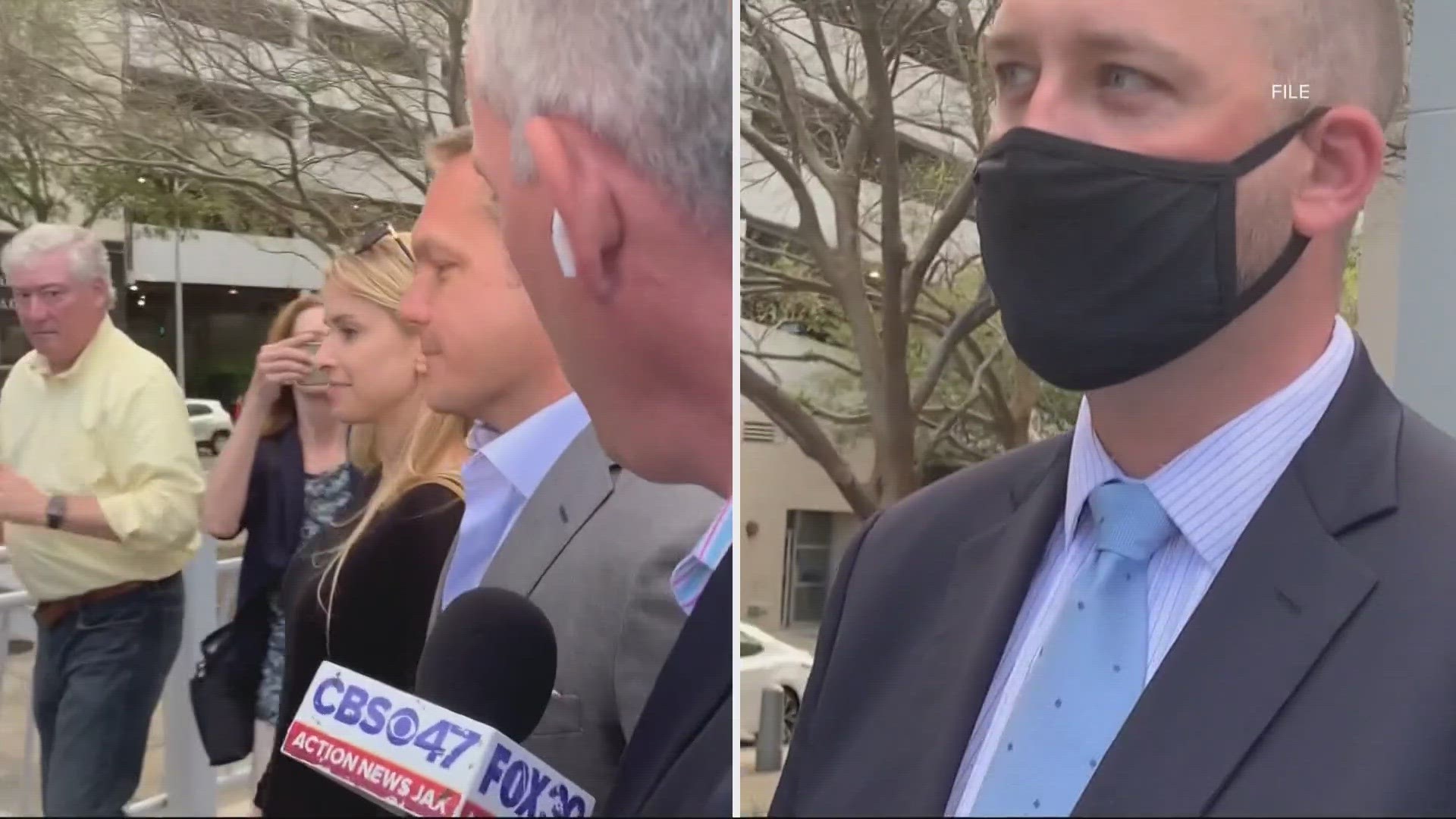JACKSONVILLE, Fla. — The former Chief Financial Officer of JEA and the utility’s city lawyer both took the stand on the first day of pretrial hearings in the corruption case against two of the utility’s former top executives.
Former CFO Ryan Wannemacher along with former JEA CEO Aaron Zahn are charged with corruption and wire fraud for crafting a pay for performance scheme prosecutors say could have netted them millions in the event of JEA’s planned privatization.
Wannemacher and former Office of General Counsel attorney Lynn Rhode both testified Monday.
Wannemacher’s testimony focused on whether or not he was compelled to attend and speak at a December 2019 hearing held by Councilmembers Rory Diamond and Ron Salem about the Performance Unit Plan, or PUP. Wannemacher said he was instructed to attend by his co-defendant and former boss Zahn, but he also felt compelled by the community's pressure surrounding the controversial sale.
“I believe I didn’t have a choice whether or not to attend, given the political and media environment around that meeting in particular,” Wannemacher testified. “To not follow the instructions would have been such a blatant act of insubordination. It would have warranted disciplinary action and I believe that disciplinary action would have been termination.”
Rhode’s testimony was more revealing, focusing on the crucible of controversy that engulfed JEA in late 2019 when news broke – and kept breaking – about the lucrative PUP. She recalled “very, very intense and negative media coverage about JEA and the procurement process.” She said the coverage “created a political maelstrom I felt very caught up in,” noting there “wasn’t anyone... who wasn’t feeling incredibly stressed.”
Rhode testified that she felt betrayed by her boss, then-Chief General Counsel Jason Gabriel, who wrote a memo to himself on Nov. 12, 2019 disclaiming what Rhode characterized as “his very intimate knowledge of the PUP plan.”
When his internal memo was reported by the Florida Times-Union in early December, Rhode testified, “My recollection is I felt scapegoated by Mr. Gabriel in that article.”
Rhode described calling Gabriel that night. “He was extremely upset, screaming, sort of beside himself with stress, etc.,” she testified. “He said he was under extreme pressure by the media, etc.”
She also testified she did not know about the specific cost of the PUP until she saw an analysis by the Council Auditor in November 2019. And she backed Wannemacher’s claim that he would have faced consequences including job loss if he’d refused to attend the Diamond Salem hearing.
Prosecutor Tysen Duva attempted to show that Wannemacher could not have “reasonably believed” that he was compelled to testify, noting that the JEA board, not Zahn, had the power to fire him, and that Zahn, who had already said he planned to resign was “a lame duck” who was not in a position to fire Wannemacher.
Duva noted that Wannemacher’s employment documents show he served at the pleasure of the JEA board, not Zhan. And Duva played portions of the hearing, at which Zahn apologized and called the PUP disaster “my mistake.”
Monday was the start of a series of hearings designed to determine if prosecutors used compelled testimony that Zahn and Wannemacher gave the city’s top lawyer, and that Wannemacher gave to the Diamond Salem committee. The so called “Kastigar” hearing requires federal prosecutors to show that did not build their criminal case using any testimony the defendants were required to give because of their jobs with the city.
Duva told the judge that later today, he expects to call Councilmembers Ron Salem and Rory Diamond, former JEA executive Kerri Stewart and former General Counsel Gabriel.

